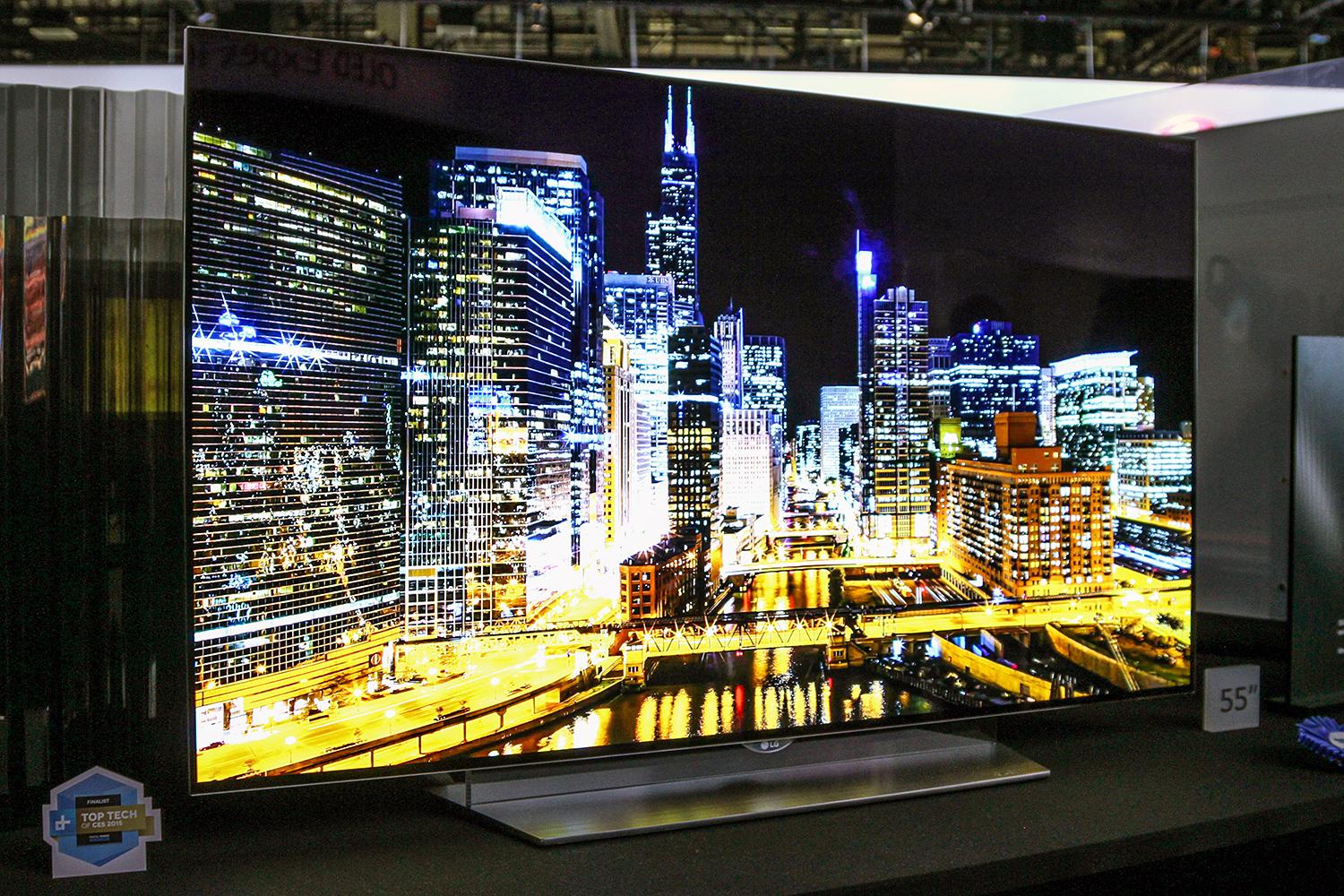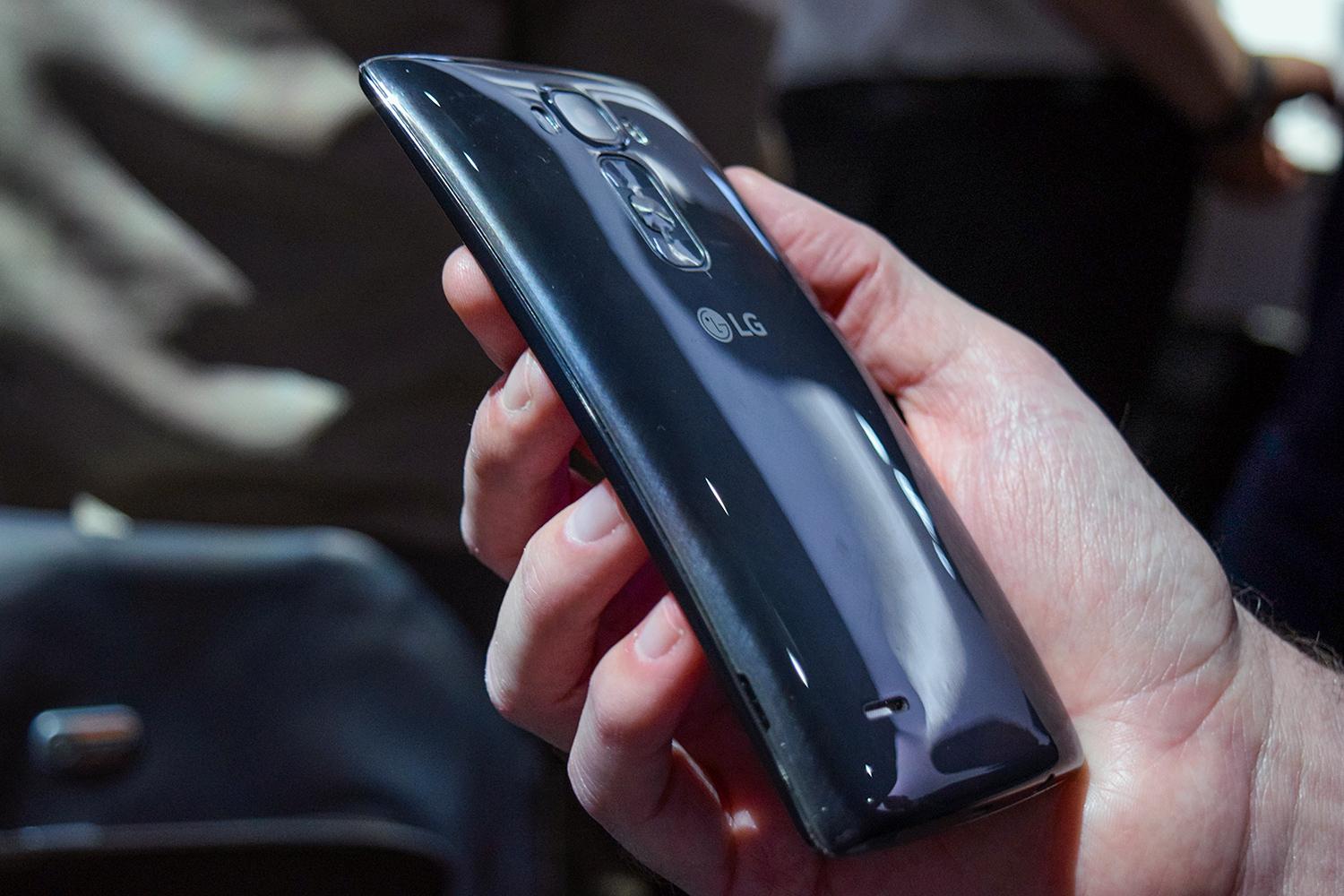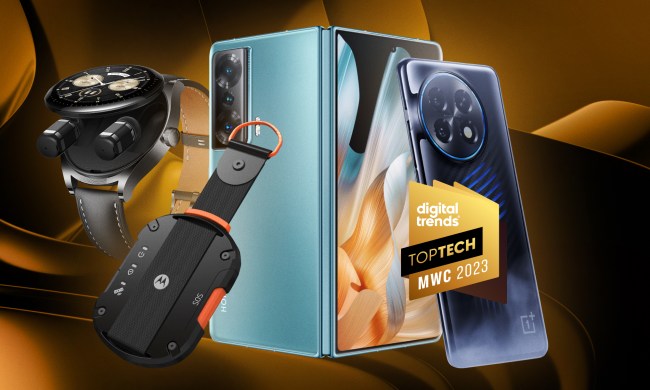
We could show you a formula, gin up some numbers, and explain how we objectively selected the Top Tech of CES 2015 from a 17-point selection process, but the truth is, we didn’t. This is just the stuff that swept our editors, experts in their fields and jaded to every type of hype and manipulation, off their feet. It’s the stuff you wish you were here to see, and more than likely, you will in the near future at a store near you. So until that day, check out the biggest, the fastest, and the most innovative CES 2015 had to behold. And tip your hat to the amazing companies that made it happen.

Best of Show
Dish Sling TV app

It’s not a TV, a smartwatch, or even a shiny something you can show off to your friends, so what the hell is Dish’s Sling TV app doing as our Best of Show? Because it’s going to change the TV industry forever, whether you use it or not.
While TV manufacturers were busy cramming enough pixels in their displays to illustrate every one of Gary Busey’s nosehairs, Dish was out finding you something better to watch. And it bagged the 10-point buck everyone else has been stalking for nearly a decade: ESPN.
For $20 a month, you can now get live ESPN without cable or satellite service. You know, the channel everyone says they would finally cancel cable if they could just get it somewhere else. We feel like we just turned 21, and now we don’t have to get our friend’s sketchy older brother to buy us beer (and keep the change, and hang out uncomfortably long drinking it with us. Later, weirdo).
Oh, and you also get CNN. And the Food Network. And TNT. And TBS.
It always seemed like Apple would be the one to throw its weight into TV’s content titans and break the chains that kept us shackled to cable, but Dish somehow pulled it off. And with one of cable’s most valuable properties liberated, it’s only a matter of time until the rest topple too.
2015 is looking like a good year for TV, and you won’t even need a $10,000 OLED set to enjoy it.
– Nick Mokey

Home Video
LG EF9500 Flat 4K UHD OLED Television

Choosing this year’s winner was excruciatingly difficult thanks to an embarrassment of riches for videophiles. Samsung and Panasonic both showed off gorgeous new LED TVs with new lighting technology that enables High Dynamic Range for higher contrast and significantly expanded color reproduction. But the lack of content to exploit those advances steals some of the wind from their sails.
In the end, LG’s newly introduced flat OLED gets our pick because it wowed us more. OLED is simply a superior display technology to LED/LCD, and it doesn’t hurt that LG’s WebOS 2.0 is our favorite smart TV interface by a wide margin. Perfect black levels, surreal colors and engrossing, realistic motion made LG’s EF9500 OLED our favorite Home Video announcement of CES 2015.
– Caleb Denison

Home Audio
Klipsch Reference Premiere Wireless Home Theater System

– Caleb Denison

Mobile
LG G Flex 2

LG’s G Flex 2 fixes nearly every problem we had with the original G Flex, and a few we didn’t even think of. It’s the fastest phone we’ve tested with a fancy new Snapdragon 810 processor in it, but more important, LG took a lot of time to shrink the size of the phone and make it more comfortable for ordinary people to hold and use. And we’d be lying if we didn’t say that the beautiful, vivid OLED screen didn’t help curry our favor.
Unlike last year, this G Flex looks like one we can recommend for almost anyone who wants the latest and greatest, and it will hit major U.S. carriers in the near future. That’s exciting.
– Jeffrey Van Camp

Wearable
Jins Meme

This year’s CES was packed full of strange wearables, from fitness trackers to belts that monitored your waistline and shirts that monitor your health. If it’s wearable, someone wants to make it smart. The problem is, when you make wearables smart, they often look ugly. Jins Meme does not have this problem.
Designed by Japanese eyeglass company Jins, the Meme look like ordinary glasses, but pack a ton of cool ideas. Using accelerometers and velocity sensors, it can determine your posture and step count (like any fitness tracker), but it also has electrodes fitted to the nose pads that can help track eye movement and blinking, which allows it to do a lot of amazing things, including monitoring how fatigued you are. We’re not sure exactly which features are best on the Meme, but we do know that Jins is taking a bunch of the coolest trends at CES and cramming them all into a pair of glasses you wouldn’t guess had a wire in ’em.
– Jeffrey Van Camp
Home
XYZprinting food printer

– Jenny McGrath

Smart Home
Vigilant Lily Pad Pool UV Sensor/Thermometer

– Jenny McGrath

Home Appliance
Samsung Activewash

– Jenny McGrath

Computing
Dell XPS 13

Notebook manufacturers have chased the dream of a portable, productive and beautiful computing experience since the first notebook was introduced by IBM decades ago. Each year they’ve inched closer, but reality has never quite lived up to expectations. Until now.
While nothing is perfect, Dell’s new XPS 13 comes as close to the ideal Windows experience as any notebook we’ve seen. It’s attractive, durable, has a beautiful thin-bezel display and lasts well over a work day on a single charge. What really sets the XPS 13 apart from others, though, is the price; it manages all of this at an entry MSRP of $799. Everyone can afford this dream machine.
– Matt Smith

Photography
Panasonic HC-WX970

Panasonic’s first prosumer camcorder is easy to use for casual videographers, but advanced enough to be a secondary 4K camcorder for pro-level users. Even if you aren’t ready for 4K, the WX970 is a great Full HD camcorder. Down-converted video still looks stunning, and a high-dynamic range (HDR) 1080p video mode – a first for consumer camcorders – ensures proper exposures.
Sony and Panasonic both have compelling new 4K camcorders that deliver on video quality, and both deserve the recognition. We think Sony’s BOSS stabilization, fast bitrate recording, and multiple camera support are terrific technologies. But we’re giving our nod to Panasonic for its own impressive features: 4K/50p resolution, HDR video, fast and accurate autofocusing and tracking, 20x Leica optical zoom lens, twin camera function, and 5-axis image stabilization.
– Les Shu

Automotive
Audi Tablet

Leave your iPad at home. The Audi Tablet can do more anyway.
First available on the 2016 Q7, the Audi Tablet is the first of its kind, and serves as both an infotainment device and next-level automotive tool. Constructed to automotive standards, it can endure both extreme heat and car crashes.
In the car, Audi Tablet users can control any number of infotainment features, from navigation, to climate, to streaming video, thanks to the onboard 4G LTE Wi-Fi. Delightfully, the Audi Tablet isn’t just useful in-car; owners can take the tablet with them and control their car remotely … or just use it as a normal tablet.
– Nick Jaynes

Gaming
Steelseries Sentry

– Adam Rosenberg

Headphones
Audeze El-8

– Ryan Waniata

Sports & Fitness
Cerevo XON Snow-1

– Drew Prindle
Skulpt Aim
One of the coolest things about the health & fitness tracking zeitgeist is that it’s ignited an arms race of sorts, and helped to bring medical tech out of the lab. It’s not just about accelerometers that track steps anymore — it’s heart rate sensors, pulse oximeters, and ballistocardiography. Extremely complex and sophisticated technologies are shrinking down and making their way into our pockets. Skulpt’s Aim device is a perfect example of this trend, which is why we’ve chosen it as one of this year’s Best of CES winners. The device uses a technique known as Electrical Impedance Myography to measure body fat percentage and muscle quality — information that’s far more insightful than your body weight, waistline, or the number of calories you burned on a given day.
Cool Tech
Not everything we see at CES fits neatly into an established product category – so we don’t bother trying. We save three Cool Tech awards each year for off-beat, futuristic, and just plain amazing tech that deserves special mention, no matter how hard it is to classify.

Tobii eye-tracking technology


Bragi Dash smart headphones


Thync mood enhancer






